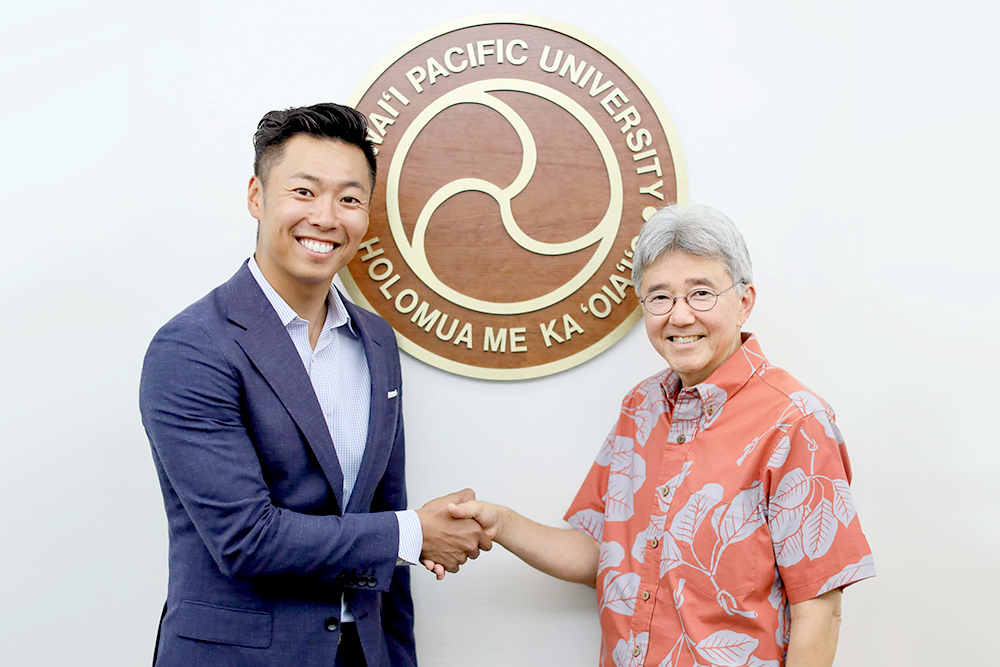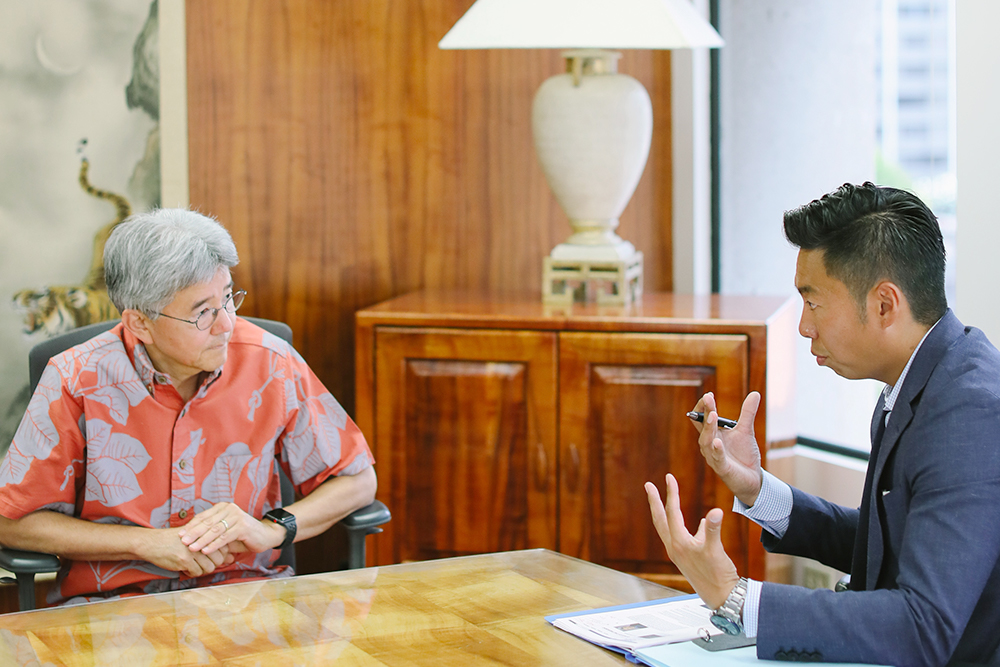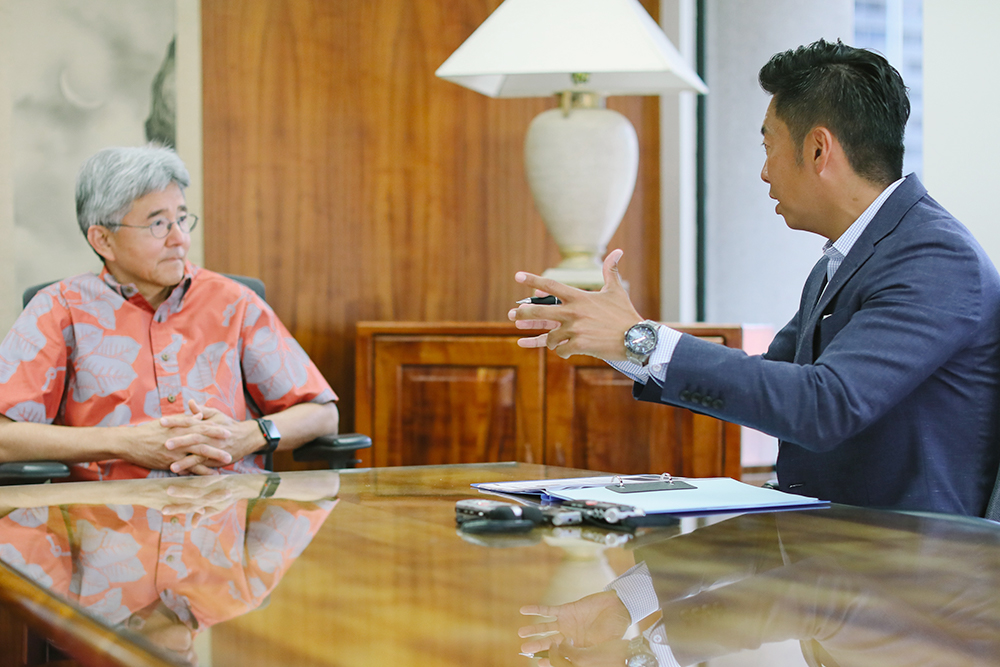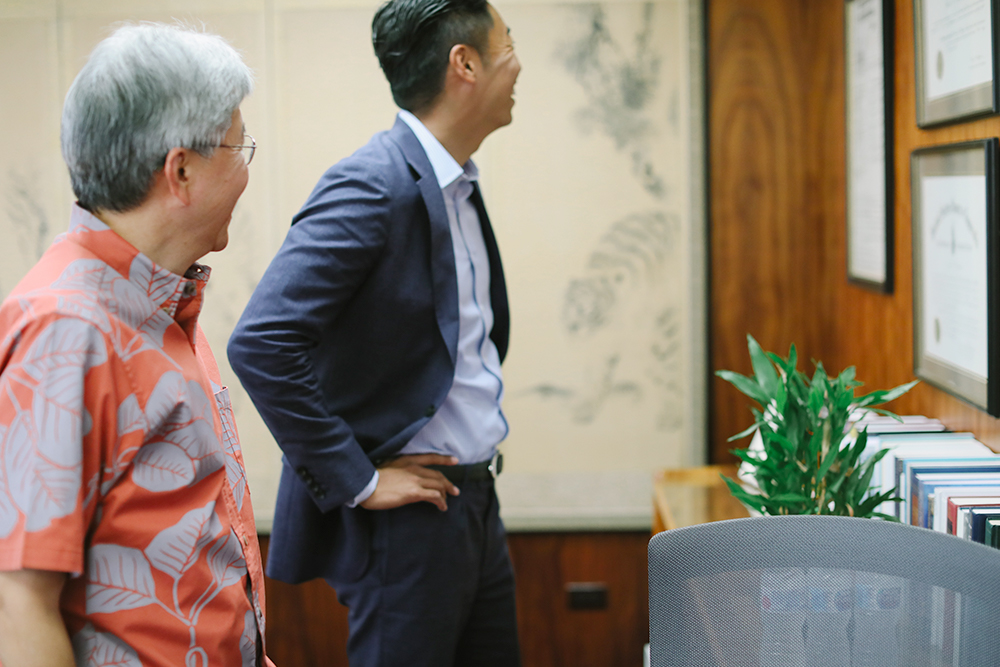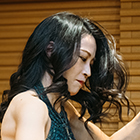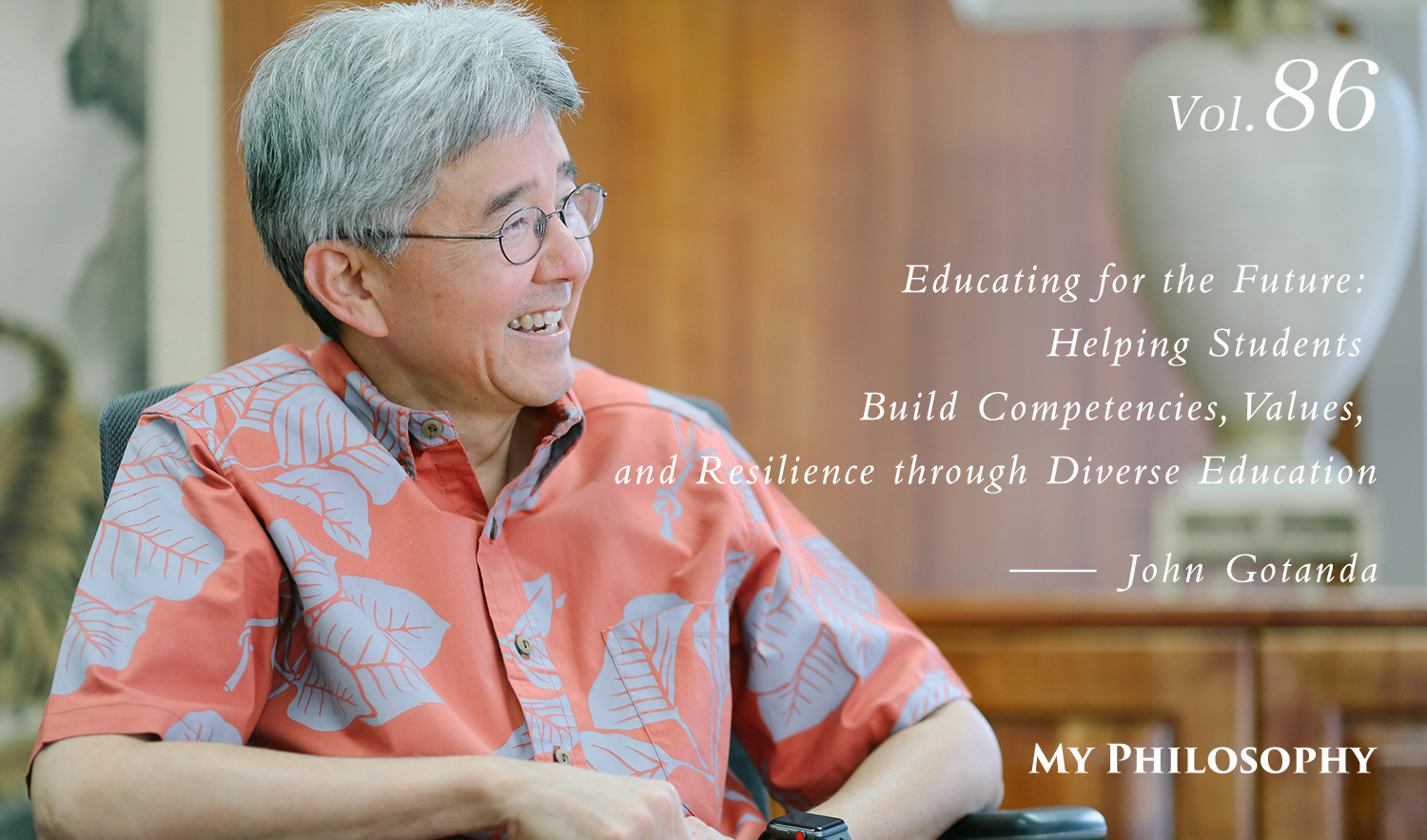
John Gotanda leads Hawai‘i Pacific University, the largest private university in the state, helping students build skills to succeed in the future.
Profile
Vol.86 John Gotanda
President of Hawai‘i Pacific University
John Gotanda became President of Hawaii Pacific University on July 1, 2016. Born and raised in Hawaii, President Gotanda is a graduate of Roosevelt High School, the University of Hawaii at Manoa (BBA, 1984) and the William S. Richardson School of Law (J.D., 1987), where he was Editor-in-Chief of the University of Hawaii Law Review. Following law school, he was a staff attorney with the United States Court of Appeals for the District of Columbia Circuit. He then worked as an associate attorney with Covington & Burling in Washington, D.C., and later with Goodwin, Procter & Hoar in Boston. He joined the faculty at Villanova University Charles Widger School of Law in 1994, where he served as Professor of Law, Associate Dean for Academic Affairs, Associate Dean for Faculty Research, and Director of the J.D./M.B.A. Program, and since 2011 as Dean of the Law School.
President Gotanda is widely recognized as one of the world’s leading authorities on damages in international law. His scholarly writings have been cited by courts, tribunals and commentators, including by the U.S. Supreme Court, and arbitral panels deciding transnational contract disputes and international investment disputes. President Gotanda has served as an expert on damages for parties involved in international disputes and as an arbitrator in international investment disputes, including for arbitrations administered under the auspices of the Permanent Court of Arbitration in The Hague and the World Bank’s International Centre for the Settlement of Investment Disputes (ICSID). He is also a member of the Advisory Council of the United Nations Conventions on Contracts for the International Sale of Goods, and a Fellow in the American Bar Foundation.
From Hawai’i to the Mainland and Back
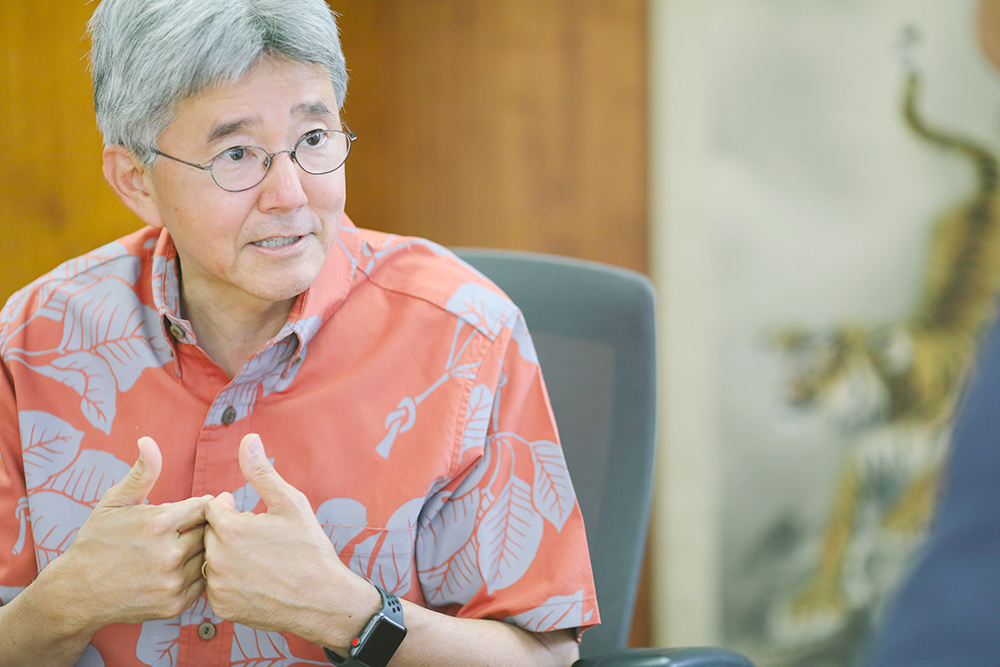
I grew up in Honolulu, Hawai‘i, and I originally thought I’d stay on the islands. While in college, I ran Lyn’s Delicatessen in the Ala Moana Center and also branched out into music by starting a small record business. After I graduated from law school at the University of Hawai‘i, I had the opportunity to go to Washington D.C. to work at the U.S. Court of Appeals. I thought I’d work there for two years and come back, but then two years turned into thirty.
After working at law firms in D.C. and Boston, I switched careers and accepted a position as an assistant professor of law at Villanova University in Pennsylvania, and that was a great fit for me. I loved the people and the mission, and I eventually became a full professor and dean of the law school. But when I was given the chance to become president of Hawai‘i Pacific University, it was an opportunity with a unique set of possibilities and challenges?one that I felt I couldn’t pass up. So I decided to come back home to Hawai’i to lead the university with a forward-looking vision.
The Crossroads of the Pacific
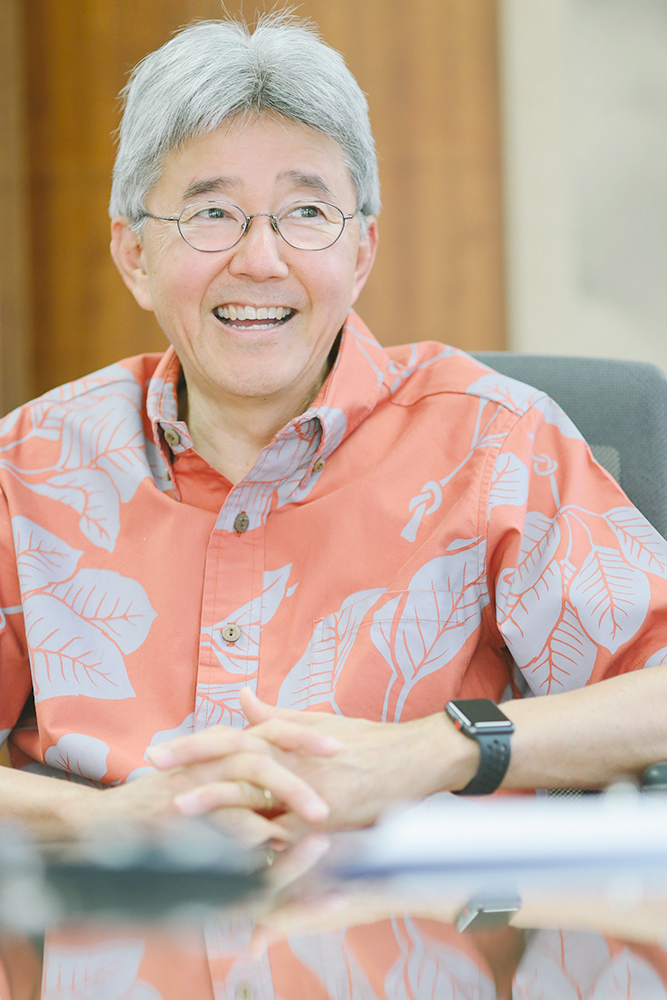
Hawai‘i Pacific University, or HPU as we call it, is relatively new, only 50 years old, and started as a school to educate the local business community. Over time, the school started to attract students from across the globe because a lot of students look at Hawai‘i as the crossroads of the Pacific, the gateway between east and west. The university also began to recruit internationally, to the point that the Wall Street Journal listed us as one of the most diverse private universities in the country.
Today, 60% of our incoming students come from the U.S. mainland, a quarter come from Hawai‘i, and the rest come from all across the globe, including one of the largest concentration of Norwegian international students anywhere. We recruit from Europe, Africa, and the Americas, as well as from the entire Pacific region and from Asia. We have students from over 65 countries and all 50 states. We have a large contingent from Japan, with over 100 graduates from the Tokyo area alone. In fact, we just held an alumni reception there.
Not only do we have a diverse student body, we also provide international experience through study abroad programs. Most of our students choose to go abroad to study. We also love to host students from other countries, as it’s a way to expose students to different ideas. We believe that living in an unfamiliar culture or learning about a different culture helps prepare our students to work in a world that is much more globalized. This kind of experience also prepares students to work domestically because it opens them up to different ways of looking at things.
A Forward-Looking Curriculum
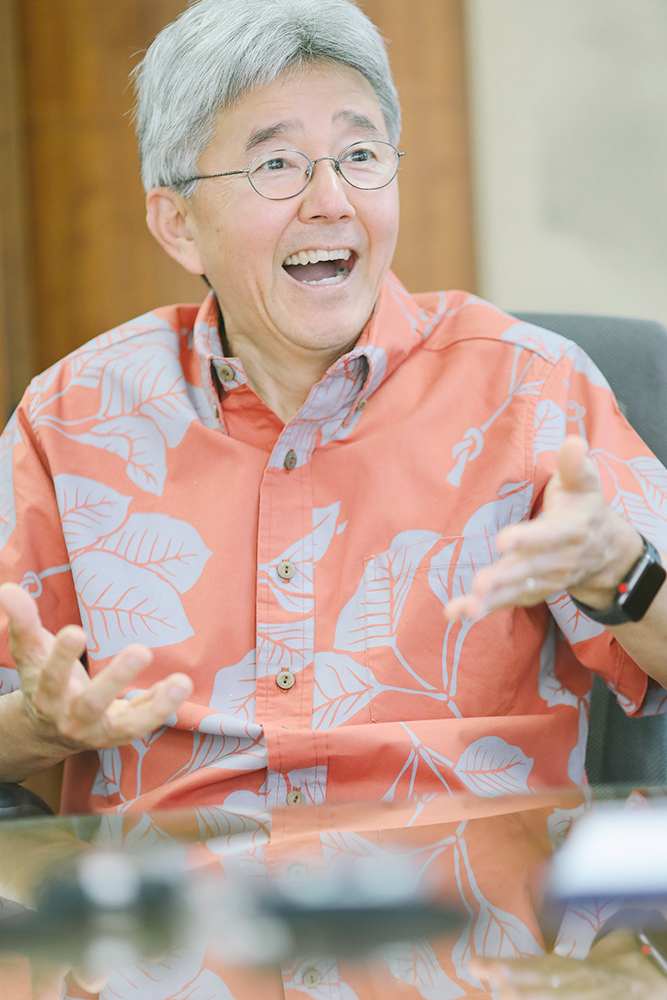
In terms of curriculum, we constantly look to innovate and improve. We see growth particularly in engineering and computer science and are building new programs in those areas. Likewise, we understand that today’s students will never have experienced a world without the internet; in their lifetime they’ll always have had a wealth of knowledge at their fingertips. If they want to know something, they pick up their iPhone. This means that students now learn differently, so we have to approach teaching differently. There is less need for a professor to stand in front of the class and lecture about knowledge itself. Today, education is less about knowledge and more about what types of skills, values, and competencies students need to be able to work in a variety of environments.
Our faculty is made up of teachers, scholars, and members of the community who really embody the aloha and kuleana values of Hawai‘i Pacific University. HPU’s faculty have a passion for working with students, and here the faculty actually teach the classes, rather than passing them off to research assistants or graduate students. More than just offering small classes, we want to provide personal, one-on-one attention to each student. Our faculty take pride in knowing their students’ names, and our hope is that every graduate will know at least one professor well enough to receive a letter of recommendation from someone who really knows them. Today, we’re also looking for faculty members who are innovative and entrepreneurial, who will be able to look toward the future and ask how can we better train our students for a world that is constantly changing. How can we give them those skills?
We put students first and are constantly trying to make their experience better. This is why we are now consolidating our campuses. We currently have three campuses: our downtown campus in Honolulu, our Hawai‘i Loa Campus, and our Oceanic Institute on the east side of the island. We’re consolidating and moving most of our programs to downtown Honolulu because our students want a unified experience. This will also bring the colleges closer together and allow for much more interdisciplinary activity and collaboration among both faculty and students. All throughout this process, we’re asking ourselves how we can create all new spaces for students that will allow them to have a new type of educational experience. Discovering how we can constantly improve is sort of a mantra for us.
When thinking about outcomes, we try to prepare students, not only to succeed on day one, but to succeed no matter what the future may hold. For most of our students, the job they get when they graduate probably won’t be the same five years down the line. Companies tell us that they can train people to do certain jobs, but what they need is for their employees to have a baseline of competencies coming in. Students need to be equipped with skills that allow them to succeed even when the market changes. Among these most vital skills are the ability to write effectively, communicate clearly, and solve problems. This last skill is related to why we place such importance on diversity. If a person can look at the world from different angles and understand different perspectives, they’ll be problem-solvers in the end. These abilities, coupled with a solid understanding of project management and networking, are important for everyone regardless of profession.
Teaching Students to Fail
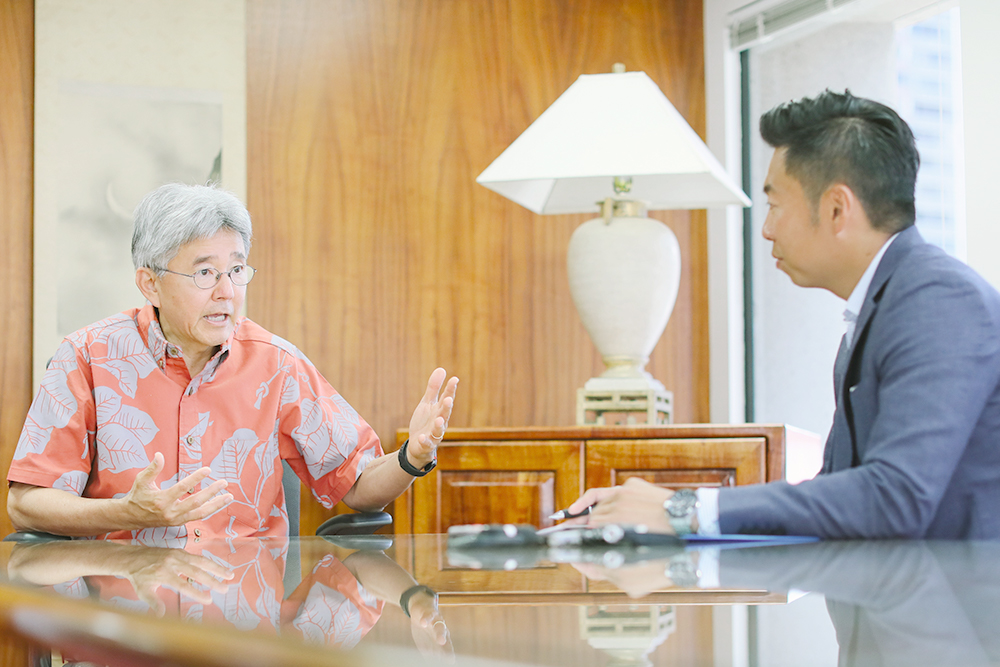
Another concept we are working on building into our curriculum is the idea of resilience. People need to fail. They need to fail in order to move forward. You don’t innovate unless you fail. So we teach our students that failure is okay and show them how to pick themselves up when they do fail. We need to build a culture that says it’s okay to try different things and that if you fail, it doesn’t mean that it’s a bad thing in the end. This is why I am constantly going to the faculty and staff and telling them that we want to move the university forward in different and innovative ways. I encourage them not to be afraid to come up with different ideas, even if they don’t ultimately work. Creating a culture of innovation, which understands failure as integral part of innovation, is one of the keys toward moving institutions forward. So, I think we need to start actually teaching that concept early on?as early as grade school?so we can find different ways to teach innovation and failure.
For example, when I was a dean at the Villanova Law, I had an idea that every law student should have some kind of baseline of financial literacy before they graduate. This meant that we needed to build a kind of mini MBA-type program into the curriculum. So, we developed the program and introduced it?and the first year was a failure. Students didn’t like it, and we weren’t achieving the goals we wanted to achieve. However, rather than simply giving up and saying this is a failure, we went back and redesigned the course. We kept some of the parts we thought worked well, but most of it was redesigned. The next year, we tried again, and the reception was a little better. It wasn’t a total success, but we saw students’ understanding of the concepts increase. It wasn’t until the third year that we started to see that there was satisfaction with the course and that students were actually getting the concepts. I think if we hadn’t failed in the first instance, we would have just continued to offer the course and it would have been mediocre. Or we could have killed it, and, ultimately, we wouldn’t have achieved our goals. It was important for us to see where our mistakes were and understand them right then and there.
I also use this same approach in strategic planning. Strategic planning shouldn’t be something we do every five years. It should be something that is constantly evolving. Our plans should adapt and change as our needs change or as we see things aren’t working like we thought they would.
Challenging Traditional Networks with eSports
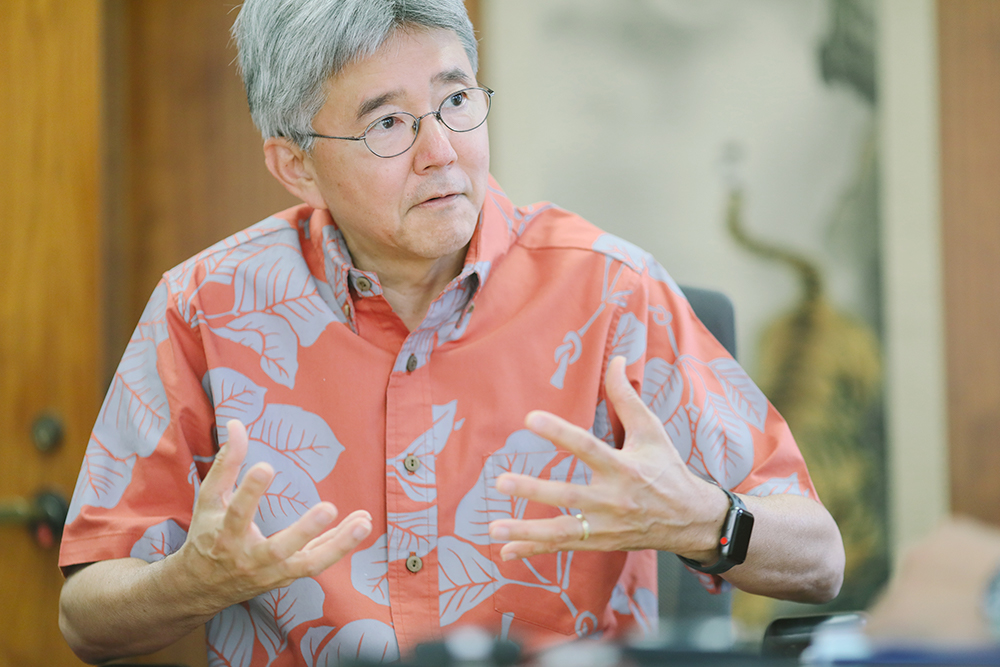
One example of how we have adapted a new strategy at HPU is the way we have moved into eSports this past year at HPU. As you may know, there are only several hundred universities across the country that have dipped their toes into the eSports area, and we were the first ones in Hawai‘i to open an eSports center and program. We did this because we saw eSports is the sort of area that interests incoming students. When we look at a lot of market research guides, we see that 65-70% of people under 25 report playing video games before entering college. Millions of people watched the League of Legends finals and play Fortnite. We realized this was the future and, after a lot of research, we took a student lounge, which was only being used by four or five people a day, and we turned it into an eSports center. Now, it draws anywhere from 60 to 150 people a day. We also partnered with Sony and with Microsoft to provide Playstations and virtual reality stations, and decided we were going to visit Riot Games, the maker of League of Legends. We are now one of only two universities in the country that have the unlocked version of League of Legends.
The center is not only a place where students can play video games, but it’s also a space where they can interact with each other. It’s about providing those new types of experiences for our students, and now our communications faculty are asking how they can use eSports in their digital media classes. Professors in other fields, like our computer science faculty, for example, are also looking at eSports. It not only provides a recreational outlet for students but also an educational experience, as well. The shift in the way we view sports, including eSports, is part of a trend that will only increase in the coming years. I think we’re going to see the traditional networks be challenged. We may be watching the next World Cup on our handheld devices instead of on TV.
We have to think about how we prepare people to work in this new world and meet the changes that they will face there. We try to provide students with a market-based education that prepares them for an ever-changing market. Constantly coming up with new educational programs and experiences for our students is an exciting challenge, and we’re always on the lookout for innovative ways of doing just that.
My Philosophy provides a fascinating look at leadership through an innovative and refreshing format. Through personalized interviews, Daisuke masterfully captures the insights, strategies, thoughts and views of a wide cross section of leaders from across the globe. Thank you for including me in the conversation, and I look forward to your future interviews.
John Gotanda President of Hawai‘i Pacific University
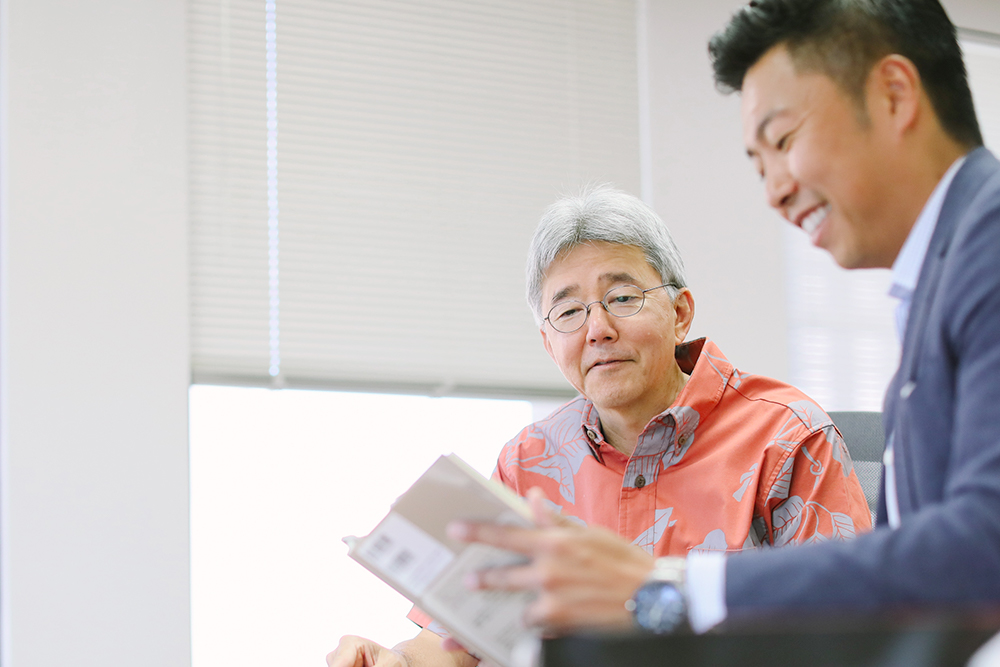
Founded in 1965, Hawaii Pacific University (HPU) has grown into one of the largest private universities in Hawaii. Students are enrolled from all over the world not only from Hawaii and the contiguous US, but also from the Pacific region, Asia, and all over Europe.
I was surprised to hear about the speed at which Mr. Gotanda has incorporated recent fields such as eSports into the curriculum. He is future-oriented and places a great deal of importance on making sure students have experience with failure. There is always something to learn from failure, and Mr. Gotanda is constantly thinking about how to make HPU a place where students can learn how to succeed in our ever-changing society. As the world continues to change at such a rapid pace, students need an education that will help them adapt to these changes.
This interview made me want to be a student again, so I could go abroad to study in a place with so much ethnic diversity and so many different perspectives. I have to say, Hawaii really is the best. [laughs]
This interview took place at Hawaii Pacific University, in June 2018. Editing: Queen & Co. Photography by Better Half Kanae.




